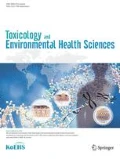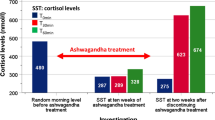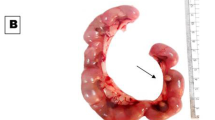Abstract
Objective: We assessed the andropause (=male climacteric syndrome)-relief effects of the sea cucumber (Stichopus japonicus) samples in an in vivo animal model using aged male SD rats (24 weeks old). Methods: During the experimental period, G1 (control group) received saline, and G2, G3, and G4 were administered 250 mg/kg of sea cucumber hot water extract, sea cucumber fermented by Cordycepe mili-taris, and hydrolysate of sea cucumber, daily by oral gavage, respectively. After 4 weeks, the effects of male menopause and aging on vascular health were assessed by measuring the total cholesterol (TC), tri-glyceride (TG), high density lipoprotein-c (HDL-c), and low density lipoprotein-c (LDL-c) in the serum. Testosterone levels, the most important indicator in male menopause, were measured in the blood. Aspartate transaminase (AST) and alanine transaminase (ALT) levels were also measured in order to evaluate liver toxicity.
Results: No animal deaths were observed due to the administration of the test substance during the experimental period. There were no significant differences observed in the body weight, TC, TG, LDL-c, AST, and ALT levels in all 4 groups. In the G2 and G4 groups, the HDL-c level was significantly increased as compared to the other groups. Testosterone levels were significantly increased in the G4 group compared to the other groups.
Conclusion: Therefore, the hydrolysate of sea cucumber, at a moderate dose (ca. 2400 mg/day), could be used as a health functional food material or pharmaceutical material to alleviate symptoms of male andro-pause without any adverse effects.
Similar content being viewed by others
References
National Institute of Food and Drug Safety Evaluation (NIFDS). Health Functional Food Functionality Evaluation Guide- ‘Can help men's health in menopause’ (2015).
Zitzmann, M., Faber, S. & Nieschlag, E. Association of specific symptoms and metabolic risks with serum testosterone in older men. J. Clin. Endocrinol. Metab. 91, 4335–4343 (2006).
Werner, A. A. The male climacteric. JAMA. 112, 1441–1443 (1939).
Delev, D. P., Kostadinova, I. I., Kostadinov, I. D. & Ubenova, D. K. Physiological and clinical characteristics of andropause. Folia. Med. 51, 15–22 (2009).
Hochreiter, Ackermann & Brütsch. Andropause. Ther. Umsch. 62, 821–826 (2005).
Morley, J. E., Haren, M. T., Kim, M. J. & Kevorkian, R. Testosterone, aging and quality of life. J. Endocrinol. Invest.28, 76–80 (2005).
Ahn, T. Y. Diagnosis and treatment of andropause. Korean J. Med. 68, 123–126 (2005).
Rhoden, E. L. & Morgentaler, A. Risks of testostero-nereplacement therapy and recommendations for monitoring. N. Engl. J. Med. 350, 482–492 (2004).
Kim, J. J. PADAM (partial androgen deficiency in the aging male) and hormone replacement therapy. Korean J. Androl. 22, 45–51 (2004).
Lee, K. S., Lee, E. K., Kim, S. Y., Kim, T. H. & Kim, H. P. Effect of a mixed extract of fenugreek seeds and Les-pedeza cuneata on testosterone deficiency syndrome. Korean J. Food Sci. Technol. 47, 492–498 (2015).
Jeong, B. S., Kim, S. H. & Kim, H. P. Effect of fermented Cirsium japonicum extract on testosterone deficiency syndrome. J. Korean Soc. Food Sci. Nutr. 46, 790–800 (2017).
Oh, G. W., Ko, S. C., Lee, D. H., Heo, S. J. & Jung, W. K. Biological activities and biomedical potential of sea cucumber (Stichopus japonicus): a review. Fish. Aquatic. Sci. 20, 28 (2017).
Bordbar, S., Anwar, F. & Saari, N. High-value components and bioactives from sea cucumbers for functional foods-a review. Marine Drugs. 9, 1761–1805 (2011).
Kariya, Y. et al. Isolation and partial characterization of fucan sulfates from the body wall of sea cucumber Stichopus japonicus and their ability to inhibit osteo-clastogenesis. Carbohydr. Res. 339, 1339–1346 (2004).
Liu, X. et al. Antioxidant and antihyperlipidemic activities of polysaccharides from sea cucumber. Aposti-chopus japonicus. Carbohydr. Polym. 90, 1664–1670 (2012).
Tian, F. et al. PE, a new sulfated saponin from sea cucumber, exhibits anti-angiogenic and anti-tumor activities in vitro and in vivo. Cancer Biol. Ther. 4, 874–882 (2005).
Saito, M., Kunisaki, N., Urano, N. & Kimura, S. Collagen as the major edible component of sea cucumber (Stichopus japonicus). J. Food Sci. 67, 1319–1322 (2002).
Heinemann, L. A. J., Zimmermann, T., Vermeulen, A., Thiel, C. & Hummel, W. A new ‘aging males symptoms’ rating scale. Aging Male. 2, 105–114 (1999).
Wu, C. Y., Yu, T. J. & Chen, M. J. Age related testosterone level changes and male andropause syndrome. Chang Gung Med. J. 23, 348–353 (2000).
Tan, R. S. Memory loss as a reported symptom of an-dropause. Arch. Androl. 47, 185–189 (2001).
Kaufman, J. M. Hypothalamic-pituitarygonadal function in aging men. Aging Male. 2, 157–162 (1992).
Solstad, K. & Garde, K. Middle-aged Danish men's ideas of male climacteric and of the female climacteric. Maturitas. 15, 7–16 (1992).
Furukawa, T. et al. Ginsenoside Re, a main phytosterol of Panax ginseng, activates cardiac potassium channels via a nongenomic pathway of sex hormones. Mol. Pharmacol. 70, 1916–1924 (2006).
Kim, M. et al. Function of Korean black ginseng: Improvement of andropause symptoms by a complex extract of black ginseng and fenugreek in TM3 Leydig cells and aged rats. J. Ethn. Foods. 3, 228–234 (2016).
Korea Food & Drug Administration (KFDA). Health Functional Food Code (2012).
Choi, J. S. et al. Antiosteoporotic effects of Polycan in combination with calcium lactate-gluconate in ovariectomized rats. Exp. Ther. Med. 8, 957–967 (2014).
Acknowledgments
None.
Author information
Authors and Affiliations
Corresponding authors
Ethics declarations
All experimental procedures were performed in accordance with the rules established by the Animal and Plant Quarantine Agency Guide for the Care and Use of Committee of National Development Institute of Korean Medicine (NIKOM-2017-20, Jangheung-gun, Jeollanam-do, Korea).
Additional information
Conflict of Interest
No competing financial interests exist. Jong-Min Lim declares that he has no conflicts of interest. Young Dae Kim declares that he has no conflicts of interest. Young Suk Kim declares that she has no conflicts of interest. Hyung-Rae Cho declares that he has no conflicts of interest. Kwang Ho Lee declares that he has no conflicts of interest. Il Joo Yoon declares that he has no conflicts of interest. Myoung Seok Kim declares that he has no conflicts of interest. Jae-Suk Choi declares that he has no conflicts of interest.
Rights and permissions
About this article
Cite this article
Lim, JM., Kim, Y.D., Kim, Y.S. et al. Sea Cucumber Stichopus japonicus Hydrolysate Alleviates Late-onset-hypogonadism in Aged SD Rats. Toxicol. Environ. Health Sci. 11, 312–319 (2019). https://doi.org/10.1007/s13530-019-0418-0
Received:
Revised:
Accepted:
Published:
Issue Date:
DOI: https://doi.org/10.1007/s13530-019-0418-0




